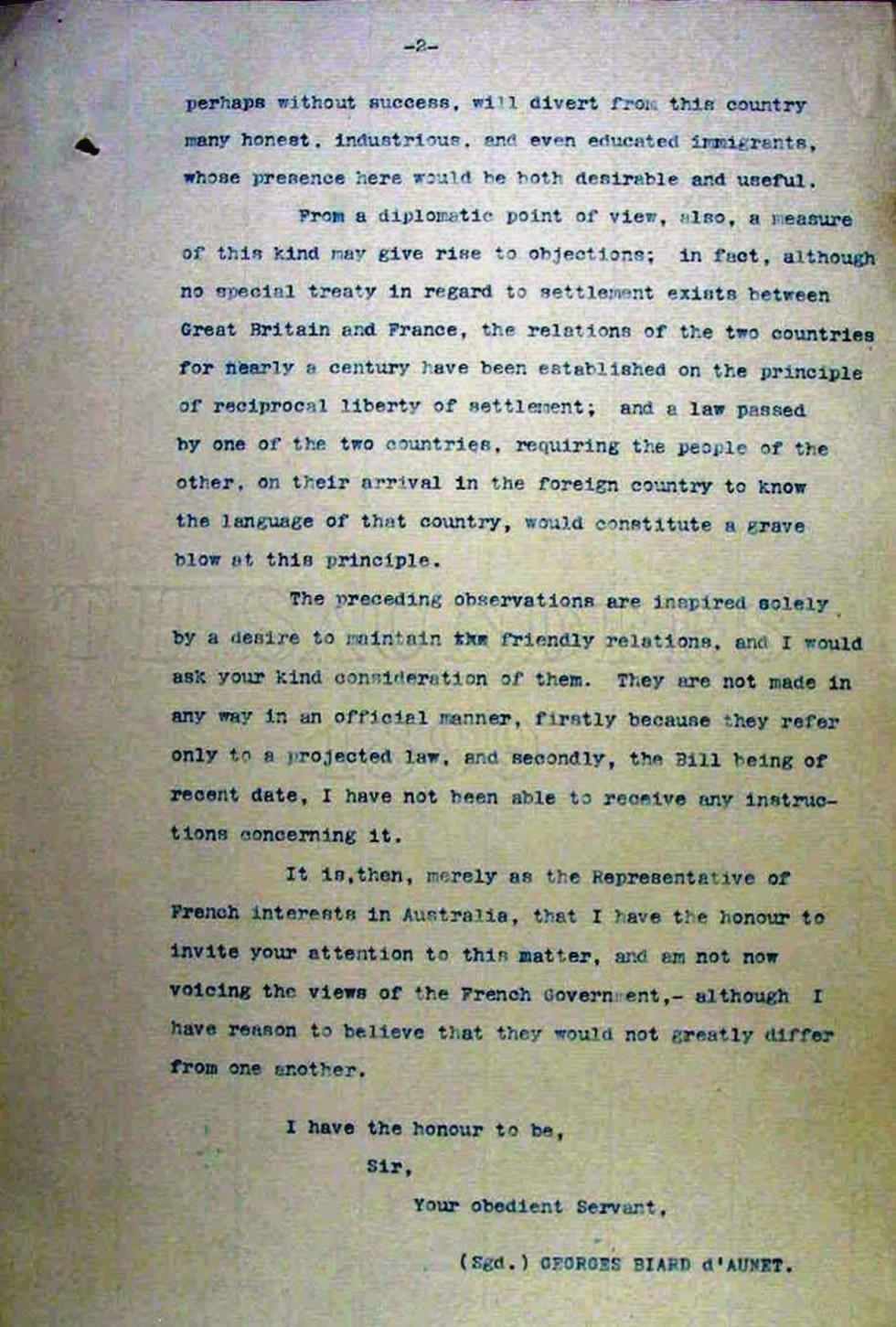
A letter written by Georges Biard d'Aunet, expressing concern over perceived unfair aspects of the proposed dictation test - page 1.

A letter written by Georges Biard d'Aunet, expressing concern over perceived unfair aspects of the proposed dictation test - page 2.



